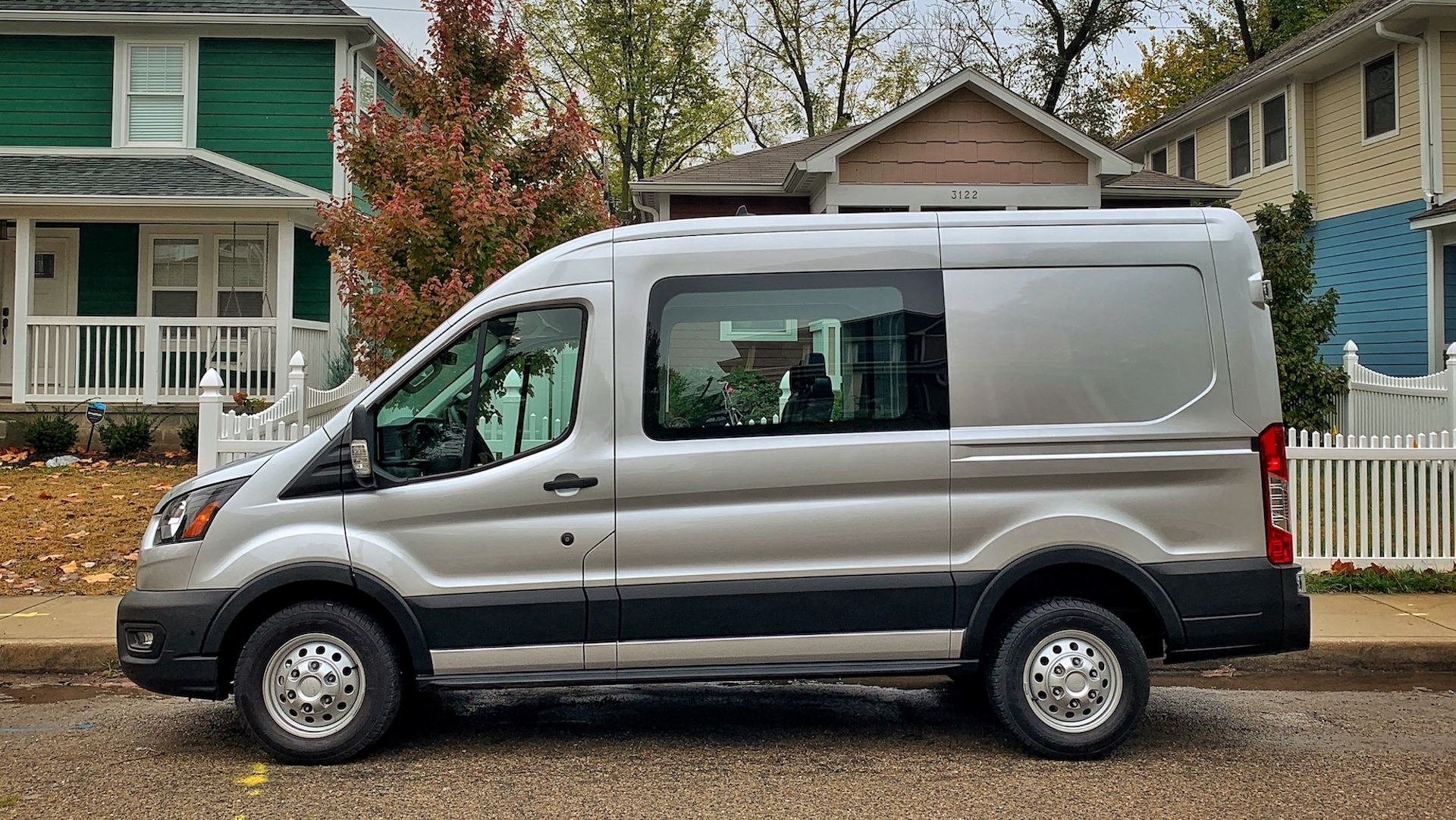

I’ll start with this: I don’t hate trucks. I actually really like them. I recently owned a 2017 Ford F-150 and have had several other pickups in my lifetime. I’m also down with expensive trucks like Ram HDs or Ford Raptors simply because they make life fun and comfortable. That being said, Ford recently dropped off a 2020 Transit van for me to test, and I was quickly reminded of what “getting back to basics” looks like. You know, simple, reliable, and utilitarian. This got me thinking: could vans be the new trucks?
Take something like the new GMC Hummer EV or Ram 1500 TRX, the two newest models to enter the truck segment. Both cater to high-performance, off-road, and tech enthusiasts. More notably, however, they cater to… well, let’s call it what it is. Rich folks. Their starting prices aren’t exactly the definition of blue-collar, and their range-topping trims can near the six-figure mark, or in the case of the Hummer, cross into it. And that’s true of this entire segment. The average pickup-truck price in America is now around $50,000, a good $15,000 more than the price of the average new car. Automakers are counting on long loan and lease terms and high-profit margins on these trucks to carry them through this economic downturn and into the electric future. But for you, the buyer, that means you gotta pay more if you want a pickup.

Is this the future of trucks in America meant only for the high rollers? If so, there’s a strong case to make for vans like the Transit, Ram ProMaster, Mercedes-Benz Metris and Sprinter. (Sadly, we can’t count the Nissan NV vans in that crowd; it’s on the way out.) They can all be had in a huge variety of lengths and heights, outfitted with various drivetrains, and their interiors can be customized in hundreds, if not thousands of ways. Whether you need to shuttle six kids or start a new mobile mechanic business, these are the vans to do so with.
The Transit I’m testing right now is a 150 MR model and it features two seats up front and one bench in the back with room for three. This leaves approximately six feet of space behind the second row, which is basically a pickup truck bed with a roof over it. Need to haul dirt bikes or dogs or a sweet drumset? Not a problem. And even better, your stuff won’t get wet if it rains or stolen if you park somewhere sketchy.
Up front, the cabin is spacious and the view is excellent courtesy of the largest windshield I’ve ever driven outside of an RV. The seats are basic but very comfortable and the armrests are well-positioned. All the controls are within reach and there are multiple cupholders and cubbies to house all the crap we need to carry nowadays.


In many ways, this Transit is like a good, old-fashioned pickup truck—but with a roof in the back. Heck, it’s even got all-wheel-drive, a heavy-duty suspension and front axle, and a dual-battery setup. What more could you need to get the job done?
Then there’s the price. Sure, this one isn’t exactly cheap at $51,100, but this one also has all the tech bells and whistles. Plus, that’s the loaded press tester car price—not the starting price—which means you can either opt for less equipment or try your luck negotiating at the dealer. Your work/family-hauling vehicle likely won’t be as opulent as mine; why would it need to be? A basic Transit Cargo Van starts at $34,510. That’s enough to make a truck buyer at least look into the #vanlife.
I’m not saying this is the perfect truck for everyone, or that there isn’t a place in the market for high-end trucks—of course there is. What I am saying is that trucks are straying further away from what they once were, and vans nowadays resemble the tried-and-true idea of what a truck is more than the newest trucks themselves. Change my mind.
Email the author at jerry@thedrive.com